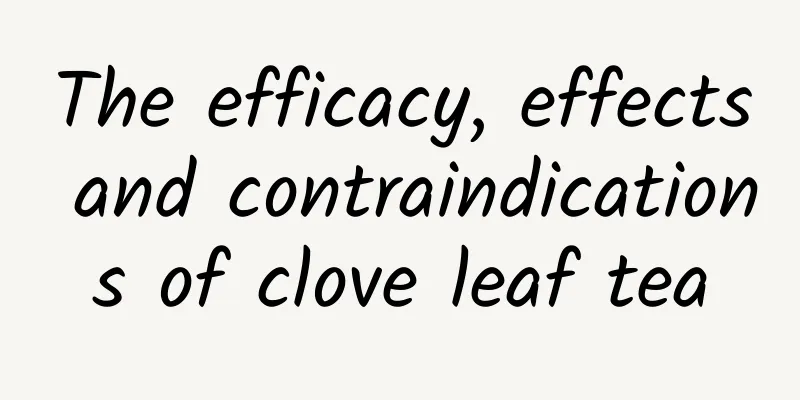Are there any side effects of dental anesthesia?

|
When performing dental treatment, anesthesia is sometimes required, such as when extracting a tooth. At this time, the dose of anesthesia is very small and generally does not cause side effects. Some people are often very afraid of anesthesia, saying that all medicines are toxic, or that general anesthesia will shorten your life by one year, etc. Such statements are quite exaggerated. As long as regular treatment is carried out, the impact on health will be relatively limited. Is anesthesia harmful to the body? When it comes to anesthesia, everyone will worry that "all medicines are poisonous". I have also heard that "one general anesthesia will shorten your life by one year". These statements are a bit exaggerated, but it is not difficult to understand this worry, because anesthetics are injected into the body and also control the brain nerves. But you should know that countries around the world have extremely strict standards for anesthetic drugs, and all anesthetic drugs have temporary and reversible inhibitory effects on human brain nerves. That is to say, after plastic surgery, the anesthetic will gradually be metabolized by the human body and excreted from the body through the respiratory tract, digestive tract, and urinary tract. Moreover, a large number of clinical studies have proved that as long as there is no frequent anesthesia experience in a short period of time, a single anesthesia is harmless to the brain, and the damage to the human body is even less than drinking a lot of alcohol. Current animal experiments have shown that only when anesthetics are taken at doses dozens of times higher than normal for dozens of days will they have an effect on the brain nerves. Four types of anesthesia 1. General anesthesia Anesthetics enter the body through inhalation of the respiratory tract, intravenous or intramuscular injection, producing central nervous system depression. The clinical manifestations are painlessness, unconsciousness, and general muscle relaxation, which is called general anesthesia. The degree of central nervous system depression is related to the drug concentration in the blood and can be controlled and regulated. This inhibition is completely reversible. After the drug is metabolized or excreted from the body, the patient's mind and consciousness, muscle movement and various reflexes gradually return to normal. 2. Sleep anesthesia Sleep anesthesia is also called intravenous anesthesia. The drugs used for sleep anesthesia are similar to those for general anesthesia, but there are far fewer types, and they are mainly administered intravenously. Unlike general anesthesia, no muscle relaxants are used, and there is no need to insert a tracheal tube through the throat. The patient breathes on his own throughout the process, which is similar to deep natural sleep. Still can't feel the pain. An anesthesiologist needs to be by the patient's side to carefully control the dosage of anesthetic drugs. Too much will affect the patient's own breathing. 3. Local anesthesia Regional anesthesia, also known as regional anesthesia, refers to the injection of local anesthetics into a part of the body (usually under the skin or around the nerves) while the patient is conscious, so that the sensory nerve conduction function of a part of the body is temporarily blocked, while the motor nerve conduction remains intact or is blocked to varying degrees at the same time. This block should be completely reversible without causing any tissue damage. The advantages of local anesthesia are that it is simple, safe, the patient is awake, there are few complications and little impact on the patient's physiological functions. 4. Surface anesthesia It is a local anesthesia method in which anesthetics are applied or sprayed on the surface of the surgical area. The anesthetic is absorbed and paralyzes the peripheral nerves to achieve analgesic effects. It is often used in beauty and skin care. |
<<: What medicine is the fastest way to clear the intestines?
>>: Does anesthesia have any effect on children's tooth extraction?
Recommend
A crooked mouth is mostly caused by facial paralysis. Care and prevention of facial paralysis
A crooked mouth is not a common symptom, but once...
Prevention, diagnosis and treatment of infiltrative pulmonary tuberculosis
Infiltrative pulmonary tuberculosis is a type of ...
What is the reason for thick white tongue coating during confinement? Teach you how to identify it
For postpartum women, they can usually detect rel...
How to effectively remove the coldness in the body?
The choice of method to remove the cold from the ...
No matter what age you are, practicing this exercise will have amazing results
Anyone can practice double-cross-legged sitting, ...
How to effectively treat premature gray hair
Premature graying of hair means that you are stil...
Time for Japanese encephalitis vaccination
I don’t know if you have heard of Japanese enceph...
What is the best combination of osmanthus and its effects and functions
Many women have the habit of drinking herbal tea....
Can I do facial laser treatment during my period?
Facial laser has now become a common beauty techn...
Scallion white can treat nasal congestion, the effect is obvious
Colds are usually accompanied by nasal congestion...
The role of oral rehydration salts
Many acute diseases can easily lead to electrolyt...
What should we pay attention to in the postoperative care of pneumothorax?
Pneumothorax is actually a symptom of gas accumul...
What are the effects of pine and wolfberry tablets?
Songqi tablets are a health product that contains...
How to take Gastrodia elata and Panax notoginseng in proportion
Panax notoginseng and Gastrodia elata are traditi...
Where to press to promote bowel movement
If constipation occurs in life, you must emphasiz...









